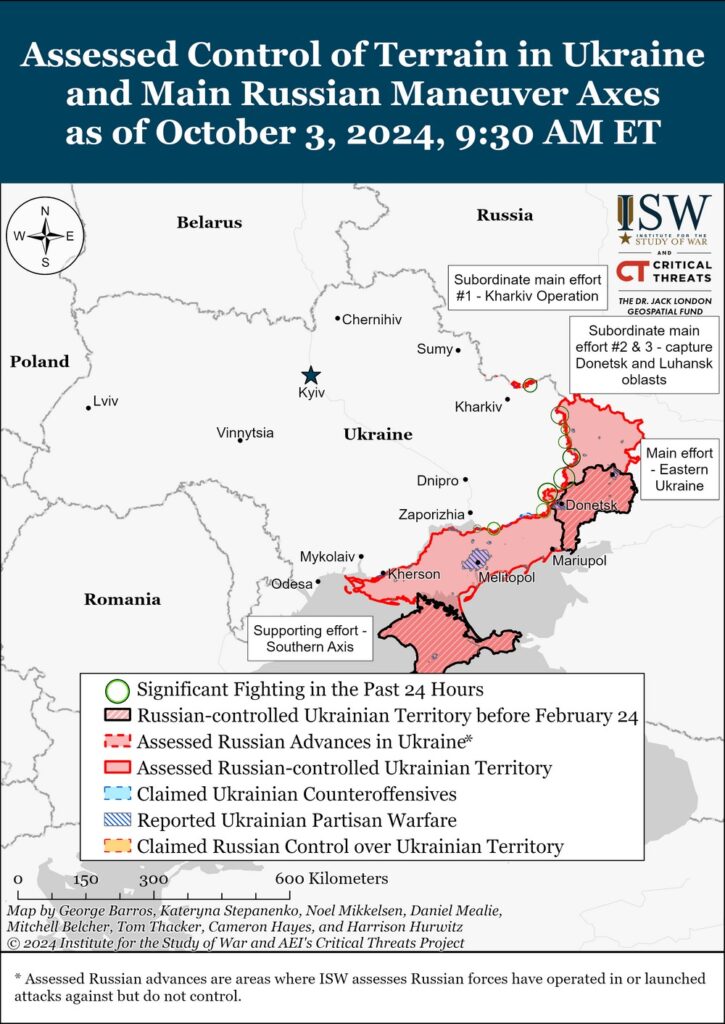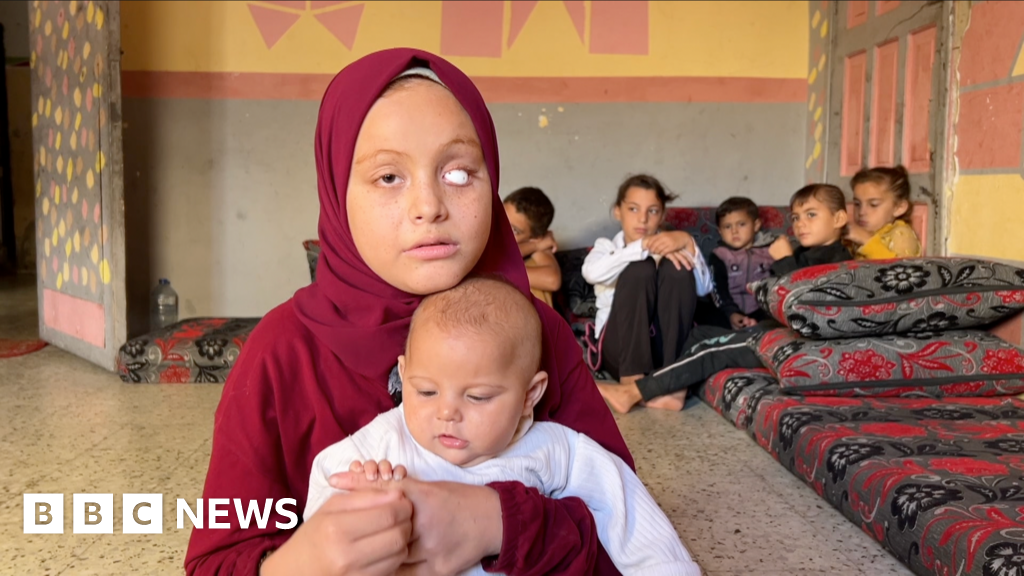ISW: Russian offensive in Ukraine to culminate in coming months “if not weeks”
Russian offensive in eastern Ukraine produces gradual tactical gains but faces difficulties in achieving operationally significant objectives, ISW says.


Russian forces continue to make gradual tactical gains in specific sectors of eastern Ukraine, but operationally significant advances remain elusive, according to an analysis by the Institute for the Study of War (ISW) on 3 October. The ongoing Russian offensive, which began in fall 2023, has faced effective Ukrainian defense in depth along the frontline.
ISW says that Ukrainian forces are inflicting significant losses upon Russian forces while slowly giving ground, preventing the Russian military from making more rapid gains on the battlefield. However, Ukrainian forces do face serious operational challenges and constraints, providing Russian forces with opportunities to pursue tactically significant gains.
The analysis highlights recent Russian tactical successes, such as the seizure of Vuhledar in western Donetsk Oblast as of 1 October. ISW notes that while this capture may afford Russian forces an improved tactical position for advancing towards the H-15 highway and eliminating the Ukrainian salient in western Donetsk Oblast, it is unlikely to radically change the operational situation in the area.
“Russian offensive operations that are pursuing operationally significant objectives, like the Russian effort to seize Chasiv Yar or to push Ukrainian forces off the left (east) bank of the Oskil River, have either stalled or are resulting in particularly gradual gains over long stretches of time, respectively,” ISW wrote.
The report suggests that the Russian military command prepared the ongoing summer 2024 offensive operation for months in advance, accumulating operational reserves and resources. However, ISW assesses that recent months of attritional fighting have likely heavily degraded these resources.
Ukrainian military observer Kostyantyn Mashovets stated on 3 October that the Russian military command originally intended to commit most of Russia’s “strategic reserves” to the Kharkiv and Pokrovsk-Toretsk directions. However, the Ukrainian incursion into Kursk Oblast and slowing Russian advances in northern Kharkiv Oblast have complicated this plan.
ISW notes that Russian forces continue to suffer heavy armored vehicle losses in large, unsuccessful mechanized assaults throughout the frontline, particularly in western Donetsk Oblast. The analysis suggests that significant medium- to long-term constraints on Russian armored vehicle stocks may force the Russian military command to rethink the benefit of continuing such intensified mechanized activity in Ukraine.
“Russian forces do not have the available manpower and matériel to continue intensified offensive efforts indefinitely, however, and current Russian offensive operations in eastern Ukraine will likely culminate in the coming months, if not weeks, as Ukrainian officials and ISW have previously assessed,” ISW says.
Russian forces may continue to conduct offensive operations at a much lower tempo throughout Ukraine, hoping that consistent offensive pressure would prevent Ukrainian forces from accumulating the manpower and resources needed to contest the theater-wide initiative.
ISW’s analysis indicates that the Russian military command is continuing to prioritize offensive operations in priority sectors of the frontline over long-term planning for Russia’s theater-wide campaign in Ukraine. The Ukrainian incursion into Kursk Oblast appears to have significantly complicated the development of Russia’s operational reserves.
In conclusion, ISW assesses that the Russian military command will likely continue to grapple with the impacts of manpower constraints on Russia’s offensive capabilities until Russian President Vladimir Putin decides that the benefits of more effective force-generation policies outweigh the risk of societal backlash.
Related:
- Russian claims of ODAB-9000 super bomb use in Vovchansk refuted by Ukrainian military
- Ukrainian brigade says it minimized losses through strategic retreat from Vuhledar
- ISW: Russian forces likely seize Vuhledar after years of failed attempts
- Frontline report: Russians lost 60+ armored units in single attack near Kupiansk
- Vuhledar’s fall likely imminent as Russian forces approach city center
- Frontline report: Russian troops resume offensive near Bakhmut, but their advance halted
- Russian forces capture three villages in Donetsk region, Ukraine advances in Russia’s Kursk area — DeepState
You could close this page. Or you could join our community and help us produce more materials like this.
We keep our reporting open and accessible to everyone because we believe in the power of free information. This is why our small, cost-effective team depends on the support of readers like you to bring deliver timely news, quality analysis, and on-the-ground reports about Russia's war against Ukraine and Ukraine's struggle to build a democratic society.
A little bit goes a long way: for as little as the cost of one cup of coffee a month, you can help build bridges between Ukraine and the rest of the world, plus become a co-creator and vote for topics we should cover next. Become a patron or see other ways to support.



